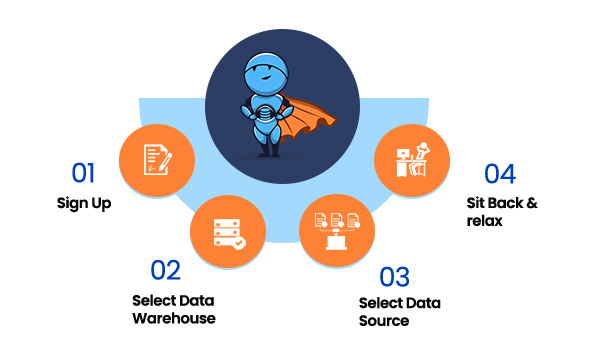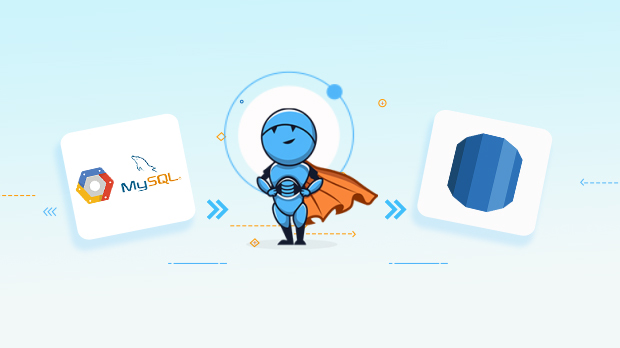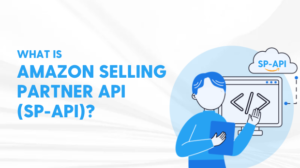Replicate GCP MySQL to Amazon Redshift in minutes
Do you want a quick and simple way to transfer data from GCP MySQL to Amazon Redshift? If yes, then you can migrate your data with an efficient ETL tool: Daton.
Modern Businesses need to harness their data to stay ahead of increasing competition and make data-driven decisions. The massive volumes of data generated from various tools require fast and secured storage. Unfortunately, building and maintaining a scalable, fast, and secure physical storage solution is quite expensive. So, the companies are resorting to cloud databases like MySQL. But managing, replicating and extracting data from these databases is complicated. Hence cloud platforms like Google Cloud Platform (GCP) have made a solution for managing MySQL databases. GCP MySQL provides seamless control on your MySQL database.
Companies try to reduce the time & effort of reporting and analyzing multiple data silos from several databases and cloud storage. They use ETL tools like Daton to load data from these Cloud platforms to data warehouses like Amazon Redshift, where you get a consolidated view for faster and more accurate reporting.
Why integrate GCP MySQL to Amazon Redshift?
Nowadays, enterprises use cloud storage solutions like Google Cloud Platform to manage their databases. These storage solutions help collaboration and consolidation, especially when multiple teams work in offices across different countries. The databases will also be automatically replicated, and backed up by secure servers, reducing data theft and loss. To simplify data analysis and reporting, merge data from GCP MySQL with other databases like Amazon Aurora, sales sheets, and COGS. However, manual data consolidation takes much time to execute manually, and the reports are often inaccurate. Thus, data-savvy companies resort to ETL tools like Daton to replicate GCP MySQL to Amazon Redshift. It is a highly automated ETL Tool that easily migrates data from different data sources to cloud data warehouses without coding.
GCP MySQL Overview
Google Cloud SQL is a fully managed Google Cloud database service that assists in performing administrative tasks like replication, database and patch management. Google Cloud SQL offers the flexibility to set up database infrastructure; so, you can conveniently shift existing databases to Cloud SQL. The replication feature can scale up, use read replicas, or migrate the My SQL database. The Backup feature can help revive lost data to a Cloud SQL database. You can also convert from a backup via Google Cloud SQL. The fully managed option can be customized to the PaaS cloud service model and for cloud-native applications. You can directly control the SQL database for larger deployments with enterprise-grade requirements by running a Google Compute Engine instance and deploying a MySQL image on it. This self-managed IaaS model gives you complete control of your MySQL database on GCP, allowing edits in database configurations.
Amazon Redshift Overview
Amazon Redshift is the most popular data warehouse to offer a cloud-native, petabyte-scale service. The software provides a query engine for all users allowing SQL based querying and a host of business intelligence tools to connect with the service. Amazon Redshift is built on a scalable infrastructure, supports big data and massive workloads. The powerful management console enables connections from any SQL client. Amazon Redshift service also supports REST APIs allowing developers to work in real-time with simple API calls. It is compatible with several BI and visualization tools.
How to replicate GCP MySQL to Amazon Redshift?
There are two ways in which you can replicate GCP MySQL to Amazon Redshift.
Build Your data pipeline – Building an in-house data pipeline needs a lot of experience, time and manpower with higher chances of errors. You need to extract data using GCP MYSQL APIs & then connect it properly with the Amazon Redshift data warehouse.
Use Daton to integrate GCP MYSQL & Amazon Redshift – Using Daton to integrate GCP MySQL & Amazon Redshift is the fastest & easiest way to save your time and efforts. Leveraging an eCommerce data pipeline like Daton simplifies and accelerates the time to build automated reporting to a great extent.
Configuring data replication on Daton only takes a few minutes and a few clicks. Analysts do not have to write any code or manage any infrastructure, yet they can get access to their Amazon ads data in a few hours. Daton’s simple and easy to use interface allows analysts and developers to use UI elements to configure data replication from GCP MySQL data into Amazon Redshift.
Daton takes care of:
- Authentication
- Rate limits,
- Table creation, deletion & reloads
- Refreshing access tokens,
- Sampling,
- Historical data load,
- Incremental data load,
- Notifications
and many more important functions for data analysts to focus on analysis rather than worry about the data replication process.
Steps to Integrate GCP MySQL with Daton

- Sign in to Daton
- Select GCP MySQL from Integrations page
- Provide Integration Name, Replication Frequency, and History. Integration name would be used in creating tables for the integration and cannot be changed later
- You will get redirects to GCP MySQL login for authorizing Daton to extract data periodically.
- Post successful authentication, you will get prompts to choose from the list of available GCP MySQL Ad accounts
- Select required tables from the available list of tables
- Then select all required fields for each table
- Submit the integration
For more information, visit GCP MySQL Connector
Sign up for a trial of Daton Today!
Here are more reasons to explore Daton for GCP MySQL to Amazon Redshift Integration
- Faster Integration of GCP MySQL to Amazon Redshift– GCP MYSQL to Amazon Redshift is one of the integrations Daton can handle very fast and seamlessly. By following few steps, you can easily connect GCP MYSQL to Amazon Redshift.
- Robust Scheduling Options: allows you to schedule jobs based on their requirements using a simple configuration step.
- Low Effort & Zero Maintenance – Daton automatically takes care of all the data replication processes and infrastructure once you sign up for a Daton account and configure the data sources. There is no infrastructure to manage or no code to write.
- Data consistency guarantee and an incredibly friendly customer support team ensure you can leave the data engineering to Daton and focus instead of analysis and insights!
- Enterprise grade data pipeline at an unbeatable price to help every business become data driven. Get started with a single integration today for just $10 and scale up as your demands increase.
- Support for all major cloud data warehouses including Google BigQuery, Amazon Redshift, Snowflake, Oracle Autonomous Data Warehouse, PostgreSQL and more.
- Flexible loading options allows to you optimize data loading behavior to maximize storage utilization and easy of querying.
- Enterprise grade encryption gives your peace of mind
- Support for 100+ data sources – In addition to GCP MYSQL, Daton can extract data from a varied range of sources such as Sales and Marketing applications, Databases, Analytics platforms, Payment platforms and much more. Daton will ensure that you have a way to bring any data to Amazon Redshift and generate relevant insights.
For all sources, check our data connectors page.
Other Articles by Saras Analytics,













